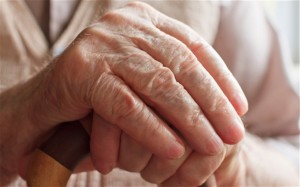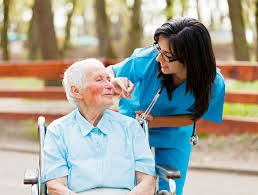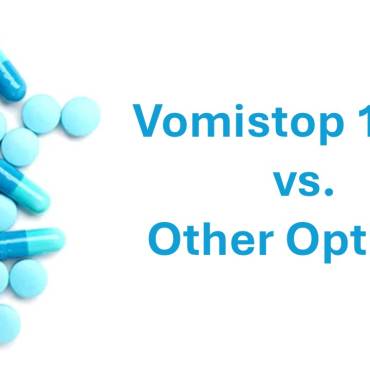Alzheimer is an incurable disease, which is also the most common form of dementia, includes problems with memory, thinking and behaviour. This worsens as it progresses and leads to death also. It is the 6th leading cause of death in the United States. Dementia is a disorder of the brain that affects seriously a person’s ability to carry out daily activities. It has been proved in a recent study that every 67 seconds someone in the United States develops Alzheimer. An estimated 5 million Americans are living with this non curable disease. Out of 5 million, people aged 65 and older with Alzheimer, 3.2 million are women and 1.8 million are men.
What causes Alzheimer disease?
This disease basically develops at about the age of 65 and the risk increases as the age progresses. There is a multiplicity of causes that leads to Alzheimer disease, which are as follows:
- Genetic factors– It has been proved that less than 5 percent of the time, Alzheimer is caused by specific genetic changes. If you have a first degree relative like your parent or sibling has the disease, then you are at higher risk of developing Alzheimer. In most cases, Alzheimer disease does not exhibit dominant inheritance, in which environmental and genetic differences may act as risk factors.
- Sex- Women are more likely at risk of developing Alzheimer’s disease as compared to men because they live longer.
- Lifestyle and heart health- Basically, there is some evidence that suggests that the factors that put you at risk of heart disease, may increase the chances that you will develop Alzheimer. These include lack of exercise, high blood pressure and cholesterol, poorly controlled diabetes, diet lacking fruits and vegetables and smoking.
- Lifelong learning and social engagement– People are at higher risk of developing this deadly disease because of lower levels of education, less mentally challenging activities and less social interactions.
Signs and symptoms of Alzheimer disease:
Alzheimer disease progresses slow and initially it attacks the parts of the brain that control thought, memory and language. Some of the symptoms of this disease are as follows:
- Memory loss including, not able to recognize family members and trouble in reading or writing are the warning signs of developing the Alzheimer disease.
- A decline in the recognition, such as word-finding, vision issues, and impaired reasoning or judgment is also the early stages of Alzheimer’s disease.
- Symptoms also include forgetting how to brush teeth or comb hair.
- On the later stages, symptoms become anxious and the affected person get more aggressive, or wander away from home.
Also Read: Rejuvenate your Brain, Give it a Break
Diagnosing Alzheimer disease:
Generally, Alzheimer disease can be effectively diagnosed only after the death of the diseased person, by performing an examination of brain tissue and pathology in an autopsy. But, due to the advancement in the field of technology and medical, doctors have developed various methods to determine whether a person who is having memory problems has possible Alzheimer’s dementia or probable Alzheimer’s dementia. To diagnose Alzheimer disease, doctors may perform or ask many questions and tests respectively, these may include:
- Questions regarding overall health, previous medical problems and ability to carry out daily activities
- Complete physical exam, including neurological exam
- Performing various standardized medical tests, like blood and urine tests, to identify other possible causes of the disease
- Brain scans or MRIs may also be done to distinguish Alzheimer from other possible causes
Early detection of this diagnosis is beneficial for various reasons. The early diagnosis can provide people various opportunities to identify whether their symptoms are from Alzheimer or from another cause, namely, stroke, tumour, sleep disturbances or any other side effects of medications.
Treatment of Alzheimer disease:
Early detection and treatment process can help families plan the future, take care of financial and legal matters, make living arrangements, and develop support networks. It is a fact that Alzheimer disease cannot be cured but its symptoms can be well managed and controlled by taking suitable medications and proper care. These are mentioned below:
- Caregivers- Alzheimer is a deadly disease in which caring of the affected person should be the main priority. This disease affects the caregivers from physical, emotional, and financial point of view. So, it should be the main priority of the caregivers that they do not get frustrated by the behaviour of Alzheimer patient. It is necessary for the caregivers to develop a strong support network of family and friends to handle the stress related to the care for a loved one with Alzheimer’s disease. Caregivers may follow the below mentioned steps to support a person’s sense of well-being and ability to function:
- Remove excess furniture from home and throw rugs
- Try to reduce the number of mirrors at home because people with Alzheimer’s may find images in mirrors frightening.
- Always keep keys, wallets, mobile phones and other valuables in the same place at home as they were usually placed before, so they don’t become lost.
- Try to develop the habit of carrying a mobile phone with location accessibility so that you can call in case you are lost and people can track your location.
Home placement of a nurse– This is not easy for all because families need to consider their financial condition, emotional capacity and other issues before hiring a nurse. It is also not a surety that the caregiver you are hiring will physically or emotionally able to provide care because even with best care, the person’s condition and mental status with Alzheimer disease will decline.
their financial condition, emotional capacity and other issues before hiring a nurse. It is also not a surety that the caregiver you are hiring will physically or emotionally able to provide care because even with best care, the person’s condition and mental status with Alzheimer disease will decline.
Medications- Alzheimer’s medications can help the diseased person for a time with memory symptoms and other cognitive changes. Cholinesterase inhibitors and Memantine are the drugs that are widely prescribed by the doctors to treat the cognitive symptoms. In general, medicines are widely used to help slowing down the rate at which symptoms become worse. Moreover, Rivastigmine and Galantamine are the drugs that help the Alzheimer patients in lowering the symptoms to get worse.
Exercise- Staying fit helps the person in fighting against the diseases. So, regular exercise is very important for everybody’s wellness plan. It is very important for the person suffering from Alzheimer and a daily routine of 30-minute walk can help improve the mood of the sufferer. Moreover, always make sure that the person with Alzheimer carries identification of himself/herself if walks unaccompanied.
Nutrition- It is very necessary for the caregivers and other family members to keep a check on Alzheimer patients because people with Alzheimer may forget to eat and loose interest in eating a healthy combination of foods. Sometimes they may also forget to drink sufficient amount of water, which may lead to dehydration and constipation. So, try to offer them high-calorie food, healthy shakes and smoothies, to fulfil their daily intake. You can also supplement milkshakes with protein powders for providing the accurate amount of protein and nutrients. Furthermore, ensure that the person with Alzheimer drinks at least several full glasses of liquids every day.
Outlook:
People with Alzheimer’s disease normally live 8 to 10 years after developing symptoms. But, this may vary from person to person and totally depends on the physical condition also. Basically, Alzheimer is not usually the actual cause of death, but it act as a contributing factor. For example, the major cause of death in people with Alzheimer’s is pneumonia , which is a lung infection and may go untreated in people with the Alzheimer’s condition because they are unable to recognise that they’re ill. Pneumonia is not the only condition of death in Alzheimer’s patient but if Alzheimer becomes fatal if there are no other complications, and then there is also a chance of losing life when all bodily systems fail.
Also read: 5 Myths about Alzheimer’s Disease Debunked
Share your views and thouhghts in the comments section below. Also, share this information with your friends to spread the awareness.


